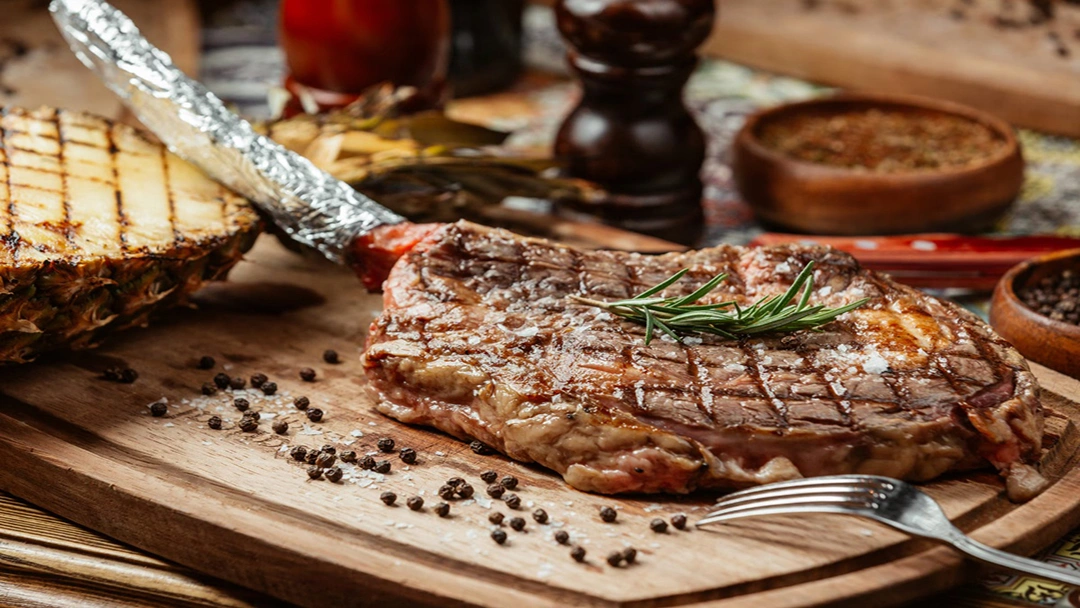Nutrients You Might Lack on The Carnivore Diet
You should know that individual nutritional needs vary, and not everyone needs the same plant-based vitamins, as certain groups have special dietary needs.
For example, pregnant women need more folate and iron, older adults require more vitamin D and calcium for bone health, and athletes need additional electrolytes and protein for muscle recovery [6] [7] [8].
Here’s a list of nutrients you might be lacking on the Carnivore Diet because of your specific nutritional needs:
- Vitamin C
- Magnesium
- Potassium
- Vitamin E
- Manganese
- Fiber
Vitamin C
Vitamin C is crucial in collagen synthesis, supporting skin health and wound healing [9]. The daily requirements of this vitamin are 75 mg for women and 90 mg for men [10].
Vitamin C is in fruits such as oranges, strawberries, and kiwi, as well as vegetables like bell peppers and broccoli.
However, some animal products, such as beef liver and fish roe also contain this mineral. The following list shows how much Vitamin C can be found in 100 grams of these foods [11].
[cta-meal-plan]
- Chicken Liver: 27.9 mg
- Pork Liver: 26.5 mg
- Clams: 22.1 mg
- Fish Roe: 16 mg
- Oysters: 12.8 mg
- Lamb Liver: 4 mg
- Salmon: 3.9 mg
- Beef Liver: 1.3 mg
- Mackerel: 0.4 mg
Learn More: How to Get Vitamin C on a Carnivore Diet? [Best Meat to Avoid Scurvy]
Magnesium
Magnesium is vital for many bodily functions, like muscle and nerve function, energy production, and maintaining a healthy heartbeat. Insufficient magnesium intake can lead to muscle cramps, fatigue, and cardiovascular issues [12].
The daily magnesium intake should be about 410 mg for men and 320 mg for women [13].
Magnesium is plenty in plant-based foods like leafy greens like spinach and kale, nuts like almonds and cashews, and seeds like pumpkin and sunflower seeds.
Some animal products, such as fish and bone broth, contain magnesium, but individuals with deficiencies may need more.
The following list shows how much magnesium is in 100 grams of these animal-based foods [14].
- Atlantic Mackerel: 76 mg
- Chinook Salmon: 95 mg
- Pacific Oysters: 22 mg
- Crab: 34 mg
- Cod: 32 mg
- Halibut: 23 mg
- Shrimp: 39 mg
- Beef: 17 mg
- Chicken Breast: 28 mg
- Turkey: 21 mg
[cta-gocarnivore-plans]
Potassium
Potassium helps regulate blood pressure, supports nerve transmission, facilitates muscle contractions, and is crucial for overall health and vitality [15].
The daily potassium requirements are 3400 mg for men and 2600 mg for women [16].
Potassium can be found in fruits like bananas, oranges, and avocados, as well as vegetables such as potatoes, spinach, tomatoes, and animal products like beef and pork.
The list below shows how much potassium is in 100 grams of the following animal-based foods [17].
- Beef Liver: 349 mg
- Pork: 362 mg
- Chicken Breast: 256 mg
- Salmon: 490 mg
- Halibut: 435 mg
- Tuna: 441 mg
- Turkey: 273 mg
- Shrimp: 259 mg
- Lamb: 260 mg
- Cod: 372 mg
Learn More: 30-Day Carnivore Diet Meal Plan PDF (Downloadable File)
Vitamin E
Vitamin E is known for its antioxidant properties, which protect cells from oxidative damage and support immune function. A deficiency in vitamin E can harm immune health and increase the risk of chronic diseases [18].
Plant-based sources of vitamin E are nuts such as almonds and hazelnuts, seeds like sunflower and pumpkin seeds, and vegetable oils such as sunflower and wheat germ oil.
Also, some animal-based foods like eggs and the following ones contain vitamin E [19]:
- Rainbow Trout: 2.3 mg
- Atlantic Salmon: 3.3 mg
- Shrimp: 1.6 mg
- Lobster: 1 mg
- Goose Meat: 1.7 mg
- Chicken Liver: 0.7 mg
- Pork Fat (Lard): 0.6 mg
- Duck: 0.7 mg
- Eggs: 1.0 mg
Learn More: Do You Need Boron on a Carnivore Diet? Everything You Should Know
[cta-meetings]
Manganese
This mineral is essential for bone formation, blood clotting, and reducing inflammation [20].
As an adult, you need 2.3 mg of manganese if you’re a man, and for women, the amount is 1.8 mg [21].
Manganese can be found in plant-based foods such as whole grains like brown rice and oats, nuts like pecans and walnuts, and leafy vegetables like spinach and kale.
Also, many animal-based foods contain manganese, which you can see in the following list [22]:
- Mussels: 6.8 mg
- Oysters: 0.3 mg
- Clams: 1 mg
- Crab: 0.1 mg
- Shrimp: 0.03 mg
- Rainbow Trout: 0.01 mg
- Chicken Liver: 0.35 mg
- Pork Liver: 0.34 mg
- Beef: 0.01 mg
- Eggs: 0.02 mg
Fiber
Many believe fiber is essential for the body, but it’s proved that fiber is not necessary for healthy digestion, and reducing it helps alleviate constipation [23].
The recommended daily fiber intake is about 25 grams for women and 38 grams for men [24].
However, some individuals report improved digestion and less bloating without fiber on a Carnivore Diet, which excludes plant foods. It suggests that fiber might cause more digestive issues in some individuals, especially those with digestive problems.
Also, the body may not easily digest fiber, and high consumption can cause the production of aldehyde, alcohol, methane, and gas, which can cause discomfort, bloating, irritation, and abdominal pain. [25] [26].
However, low fiber levels don't necessarily lead to constipation. It can happen for many reasons, such as dehydration or consuming too much protein.
Not many animal-based foods contain fiber, but you can absorb essential fiber from organ meats like liver, kidneys, and bone broth.
[cta-meal-plan]
After consulting a healthcare professional and taking the necessary tests, you can also take the following Carnivore Diet supplements to prevent nutrient deficiencies.
Learn More: Constipation on a Carnivore Diet: How Long Does It Take? [Cause and Remedy]






























